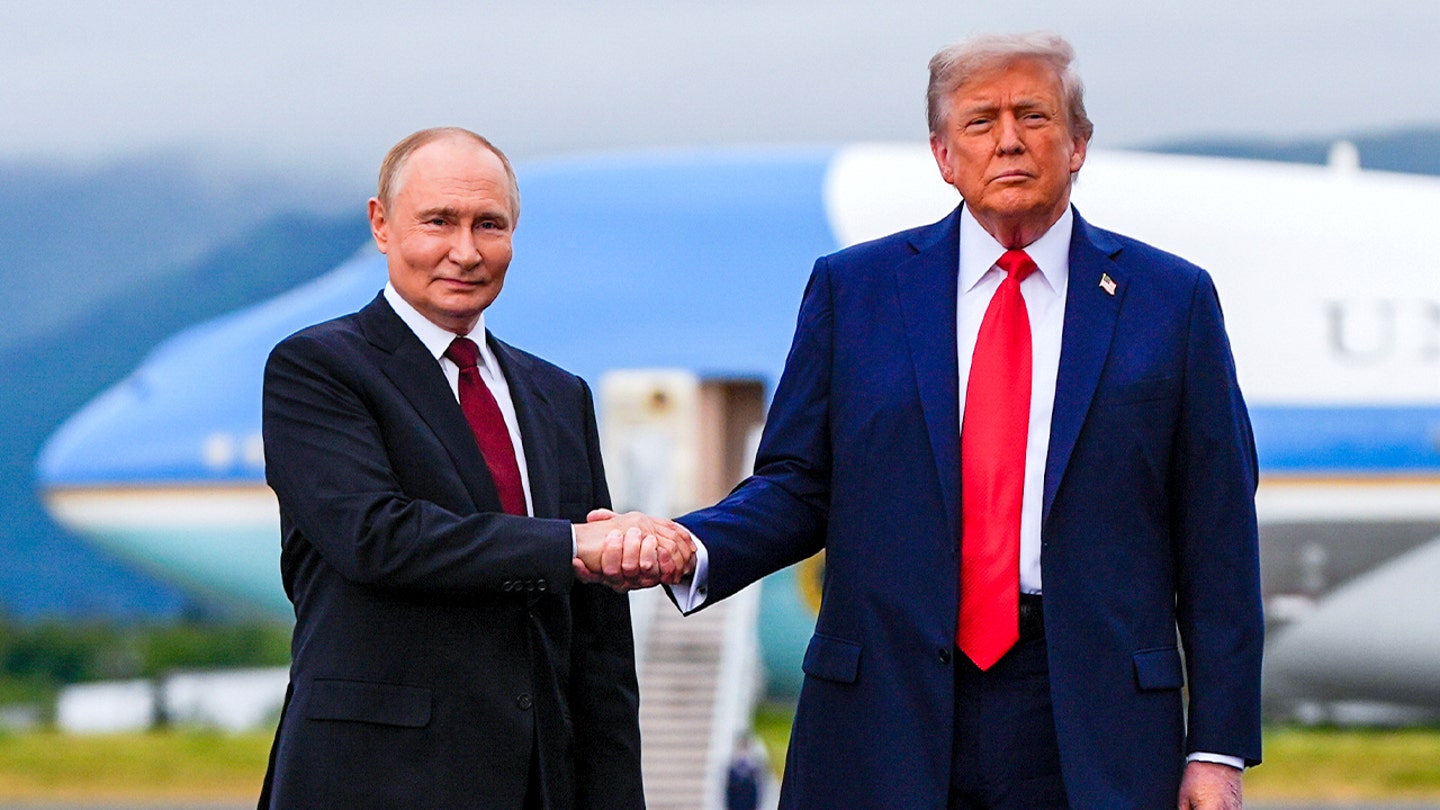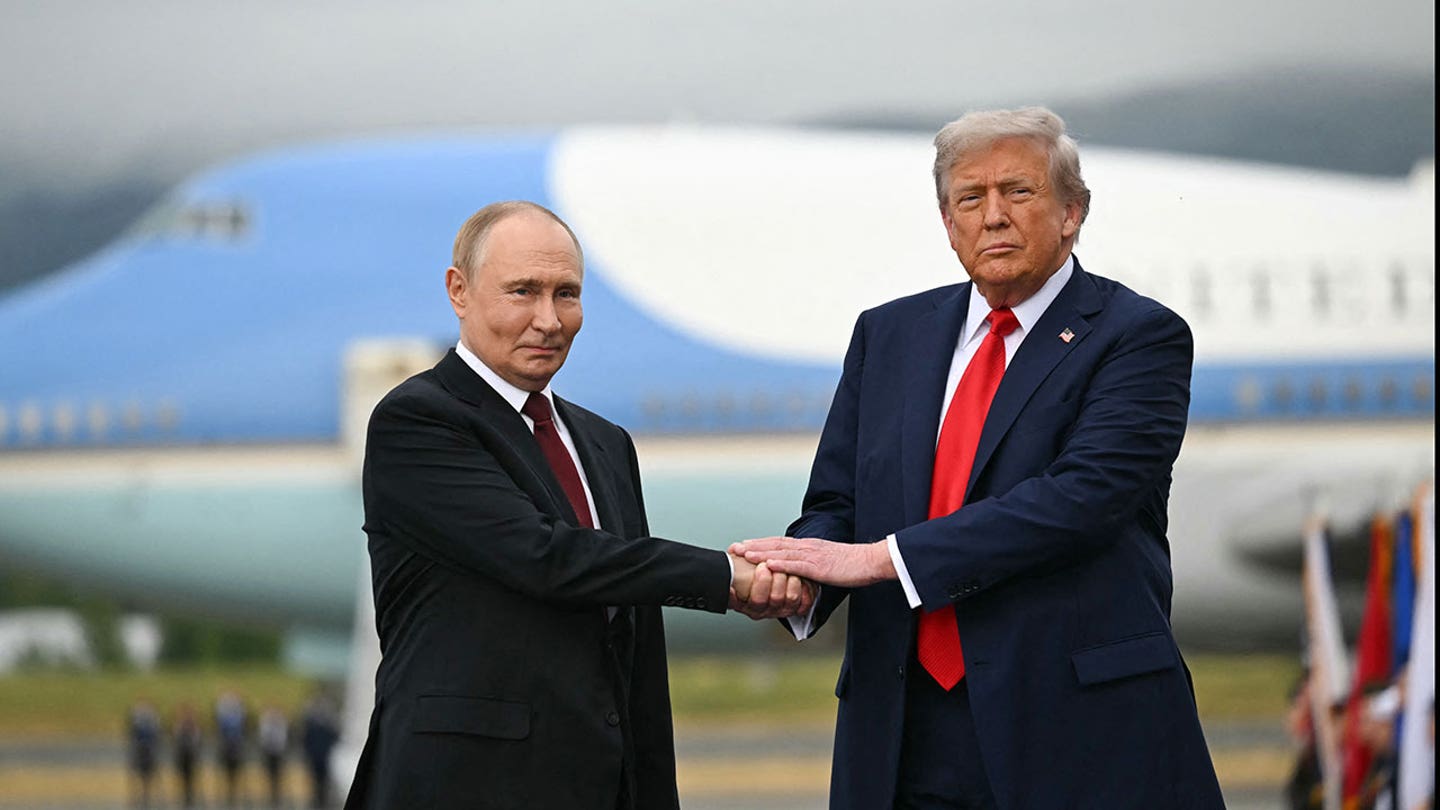
Housing chief: Opportunity zones change people's lives
Entities mentioned:
- Scott Turner: Professional pride, Duty, Influence
- U.S. Housing and Urban Development: Duty, Influence, Unity
- Lara Trump: Influence, Recognition, Ambition
Article Assessment:
Credibility Score: 50/100
Bias Rating: 65/100 (Lean Right)
Sentiment Score: 70/100
Authoritarianism Risk: 35/100 (Generally Democratic)
Bias Analysis:
The article leans right due to its featuring of a Trump administration official and Lara Trump, a member of the Trump family. The framing appears to present opportunity zones in a positive light without presenting alternative viewpoints or potential criticisms.
Key metric: Economic Mobility
As a social scientist, I analyze that this article focuses on the impact of opportunity zones on communities across the United States. The discussion of 'transforming' communities suggests potential improvements in economic conditions and quality of life for residents in these areas. This could positively affect economic mobility by creating new opportunities for employment, business development, and investment in previously underserved areas. However, the lack of specific data or examples in the article limits a comprehensive assessment of the actual impact on economic mobility.

Will Cain weighs in on male cheerleaders and NFL culture
Entities mentioned:
- Will Cain: Influence, Recognition, Professional pride
- Fox News: Influence, Competitive spirit, Control
- NFL: Pride, Influence, Control
- Donald Trump: Power, Recognition, Legacy
- Vladimir Putin: Power, Influence, Control
Article Assessment:
Credibility Score: 55/100
Bias Rating: 75/100 (Lean Right)
Sentiment Score: 50/100
Authoritarianism Risk: 35/100 (Generally Democratic)
Bias Analysis:
The bias rating leans right due to the association with Fox News, known for conservative-leaning coverage. The framing of male cheerleaders as a topic for debate rather than reporting suggests a potentially conservative stance on gender roles in sports.
Key metric: Social Cohesion
As a social scientist, I analyze that this brief segment description touches on two disparate topics - international politics and sports culture - which suggests an attempt to blend serious news with lighter cultural commentary. The juxtaposition of the Trump-Putin summit alongside NFL cheerleading practices indicates a potential effort to maintain viewer engagement through topic variety. The mention of 'male cheerleaders' in the context of NFL culture suggests a focus on changing gender norms in traditionally masculine spaces, which could impact social cohesion by challenging established cultural expectations. However, without more context, it's difficult to determine the depth or direction of the analysis provided in the actual segment.

Victor Davis Hanson shares what's setting Democrats 'on fire'
Entities mentioned:
- Victor Davis Hanson: Influence, Recognition, Righteousness
- Democrats: Moral outrage, Fear, Self-preservation
- Donald Trump: Power, Revenge, Influence
- Zohran Mamdani: Ambition, Recognition, Influence
- Hoover Institution: Influence, Legacy, Professional pride
Article Assessment:
Credibility Score: 55/100
Bias Rating: 75/100 (Lean Right)
Sentiment Score: 35/100
Authoritarianism Risk: 45/100 (Mixed/Neutral)
Bias Analysis:
The article leans right, evident in its framing of Democrats negatively and the positive presentation of critiques against 'woke' ideology. The source, featuring a conservative think tank fellow on a right-leaning show, further indicates a rightward bias.
Key metric: Political Polarization Index
As a social scientist, I analyze that this article likely contributes to increased political polarization. The framing of Democrats as 'melting down' and the focus on conflict between political ideologies suggests a deepening divide. The mention of Trump 'targeting the roots of woke-ness' implies an ongoing culture war, which often exacerbates partisan tensions. This type of rhetoric, especially from influential figures like Hanson, can reinforce existing political divides and potentially increase the Political Polarization Index.

Trump backs Putin's proposal for Russia to take full control of Donbas region in Ukraine
Entities mentioned:
- Vladimir Putin: Power, Control, Influence
- Donald Trump: Influence, Recognition, Legacy
- Volodymyr Zelenskyy: Determination, Duty, Self-preservation
- Friedrich Merz: Duty, Influence, Unity
Article Assessment:
Credibility Score: 65/100
Bias Rating: 55/100 (Center)
Sentiment Score: 35/100
Authoritarianism Risk: 60/100 (Mixed/Neutral)
Bias Analysis:
The article presents multiple viewpoints and cites various sources, including European diplomats and U.S. officials. However, it leans slightly towards emphasizing Trump's actions and their potential impact, which could be seen as centrism with a slight right-leaning tone.
Key metric: International Diplomatic Influence
As a social scientist, I analyze that this article highlights a significant shift in U.S. foreign policy regarding the Russia-Ukraine conflict. Trump's support for Putin's proposal to take control of the Donbas region could drastically alter the course of the war and international relations. This move potentially undermines Ukraine's sovereignty and NATO allies' united front against Russian aggression. The change from supporting a ceasefire to pushing for a peace agreement aligned with Russian interests suggests a major realignment of U.S. policy that could have far-reaching consequences for global geopolitics and the balance of power in Eastern Europe.

Trump reveals 10 striking takeaways from Putin summit in Hannity interview
Entities mentioned:
- Donald Trump: Power, Recognition, Self-preservation
- Vladimir Putin: Power, Control, Influence
- Sean Hannity: Loyalty, Influence, Professional pride
- Volodymyr Zelenskyy: Unity, Self-preservation, Duty
- Joe Biden: Power, Legacy, Duty
Article Assessment:
Credibility Score: 45/100
Bias Rating: 75/100 (Lean Right)
Sentiment Score: 70/100
Authoritarianism Risk: 55/100 (Mixed/Neutral)
Bias Analysis:
The article leans right, primarily due to its uncritical presentation of Trump's claims and the exclusive use of Trump and Hannity as sources. The framing portrays Trump in an overwhelmingly positive light while implicitly criticizing the current administration.
Key metric: International Relations and Diplomacy
As a social scientist, I analyze that this article presents a significant impact on US international relations and diplomacy. Trump's portrayal of his meeting with Putin as highly successful, coupled with his claims about Russia's newfound respect for America, could influence public perception of US-Russia relations. The emphasis on deal-making and Trump's willingness to participate in trilateral talks suggests a shift towards more direct, personalized diplomacy. However, the inclusion of comments about the 2020 election being rigged introduces domestic political controversy into foreign policy discussions, potentially undermining the credibility of US democratic institutions on the global stage. The article's framing of Trump as a key mediator between Russia and Ukraine, while sidelining current administration efforts, may create confusion about the official US stance on the conflict.

New York mayor frontrunner Mamdani trains fire on Trump as Cuomo attacks
Entities mentioned:
- Mamdani: Ambition, Competitive spirit, Recognition
- Donald Trump: Power, Control, Influence
- Andrew Cuomo: Power, Revenge, Self-preservation
Article Assessment:
Credibility Score: 65/100
Bias Rating: 35/100 (Lean Left)
Sentiment Score: 40/100
Authoritarianism Risk: 30/100 (Generally Democratic)
Bias Analysis:
The article leans left, focusing on Democratic candidates and framing Trump negatively. It doesn't provide balanced coverage of Republican perspectives or policies.
Key metric: Political Polarization Index
As a social scientist, I analyze that this article highlights the increasing political polarization in the New York mayoral race. The frontrunner Mamdani's focus on attacking Trump, a national figure, rather than local issues, suggests a strategy to galvanize Democratic voters by tapping into anti-Trump sentiment. Meanwhile, Cuomo's attacks on Mamdani indicate intra-party conflict, which could further divide the electorate. This dynamic is likely to increase the Political Polarization Index, as it emphasizes partisan divisions over local governance issues.

Fooled by Putin again? Trump’s rhetoric suggests he could be
Entities mentioned:
- Donald Trump: Power, Recognition, Legacy
- Vladimir Putin: Control, Power, Influence
- Karoline Leavitt: Duty, Loyalty, Professional pride
- Marco Rubio: Duty, Professional pride, Influence
- Volodymyr Zelensky: Self-preservation, Unity, Justice
- Melania Trump: Loyalty, Self-preservation, Wariness
Article Assessment:
Credibility Score: 75/100
Bias Rating: 35/100 (Lean Left)
Sentiment Score: 30/100
Authoritarianism Risk: 25/100 (Generally Democratic)
Bias Analysis:
The article leans slightly left, evidenced by its critical tone towards Trump's handling of Putin and Russia. While it presents factual information, the framing and language choices suggest a skeptical view of Trump's diplomatic abilities.
Key metric: International Relations and Diplomacy
As a social scientist, I analyze that this article highlights the complex dynamics of US-Russia relations, particularly focusing on President Trump's approach to diplomacy with Vladimir Putin. The article suggests that Trump's rhetoric and actions regarding Putin have been inconsistent and potentially naive, raising concerns about his ability to negotiate effectively. The frequent shifts in Trump's stance on Putin, from warm praise to criticism, indicate a lack of a coherent strategy in dealing with Russia. This inconsistency could potentially weaken the US position in international diplomacy and affect its relationships with allies. The article also points to a disconnect between Trump's public statements and the realities of the situation in Ukraine, which could undermine US credibility on the global stage. The low public confidence in Trump's ability to make wise decisions about the Ukraine war further compounds these concerns, potentially affecting the US's soft power and diplomatic influence.

Pentagon says Hegseth supports women’s right to vote despite sharing video saying otherwise
Entities mentioned:
- Pete Hegseth: Influence, Power, Loyalty
- Kingsley Wilson: Duty, Professional pride, Control
- Douglas Wilson: Righteousness, Influence, Control
- Jared Longshore: Righteousness, Loyalty, Influence
- Brooks Potteiger: Righteousness, Loyalty, Influence
- Donald Trump: Power, Influence, Control
- Pentagon: Control, Security, Professional pride
- CNN: Recognition, Influence, Professional pride
Article Assessment:
Credibility Score: 75/100
Bias Rating: 45/100 (Center)
Sentiment Score: 35/100
Authoritarianism Risk: 65/100 (Authoritarian Tendencies)
Bias Analysis:
The article presents multiple viewpoints and quotes from various sources, maintaining a relatively balanced approach. However, there's a slight lean towards critically examining Hegseth's associations and their potential implications, which could be perceived as a subtle center-left bias.
Key metric: Civil Liberties and Equal Rights
As a social scientist, I analyze that this article highlights a significant tension between religious conservative ideologies and established civil liberties, particularly women's voting rights. The controversy surrounding Secretary Hegseth's association with Douglas Wilson's teachings raises concerns about the potential influence of extreme religious views on government policy, especially within the Department of Defense. This situation could potentially impact civil liberties and equal rights by normalizing discussions about repealing women's voting rights and promoting gender-based restrictions in military service. The article also reveals the complex interplay between personal religious beliefs and public office responsibilities, which could have far-reaching implications for policy-making and institutional culture within the military.

Federal agents gather in DC to enforce Trump-directed crackdown on homeless encampments
Entities mentioned:
- Donald Trump: Power, Control, Recognition
- Federal agents: Duty, Control, Obligation
- DC officials: Duty, Loyalty, Professional pride
- Homeless advocates: Justice, Moral outrage, Righteousness
- Homeless individuals: Self-preservation, Security, Anxiety
Article Assessment:
Credibility Score: 75/100
Bias Rating: 40/100 (Lean Left)
Sentiment Score: 30/100
Authoritarianism Risk: 65/100 (Authoritarian Tendencies)
Bias Analysis:
The article leans slightly left, focusing more on the perspectives of homeless advocates and the potential negative impacts of the federal intervention. While it includes some quotes from officials, it emphasizes the confusion and potential harm caused by the Trump administration's actions.
Key metric: Social Cohesion Index
As a social scientist, I analyze that this article highlights a significant conflict between federal and local authorities in addressing homelessness in Washington, DC. The federal intervention, directed by President Trump, appears to be disrupting established local processes and creating confusion. This approach risks exacerbating tensions between different levels of government, law enforcement agencies, and the homeless population. The lack of coordination and communication between federal agents and local officials is particularly concerning, as it may lead to ineffective and potentially harmful outcomes for the homeless individuals involved. The abrupt nature of the intervention, without proper planning or consideration of ongoing local efforts, could negatively impact the social fabric of the city and undermine trust in government institutions.

CNN experts answer your top questions about Trump’s summit with Putin in Alaska
Entities mentioned:
- Donald Trump: Power, Recognition, Influence
- Vladimir Putin: Power, Control, Influence
- CNN: Professional pride, Influence, Duty
Article Assessment:
Credibility Score: 70/100
Bias Rating: 35/100 (Lean Left)
Sentiment Score: 50/100
Authoritarianism Risk: 30/100 (Generally Democratic)
Bias Analysis:
The article leans slightly left due to CNN's generally liberal-leaning reputation. However, the Q&A format and focus on expert analysis suggest an attempt at balanced reporting, albeit potentially influenced by the network's overall editorial stance.
Key metric: International Relations Index
As a social scientist, I analyze that this article's focus on the Trump-Putin summit suggests significant implications for US-Russia relations and global geopolitics. The involvement of CNN experts indicates public interest and the media's role in shaping perceptions of international diplomacy. The format of addressing reader questions implies an attempt at transparency and public engagement in complex foreign policy matters, potentially influencing public opinion and, by extension, diplomatic strategies.